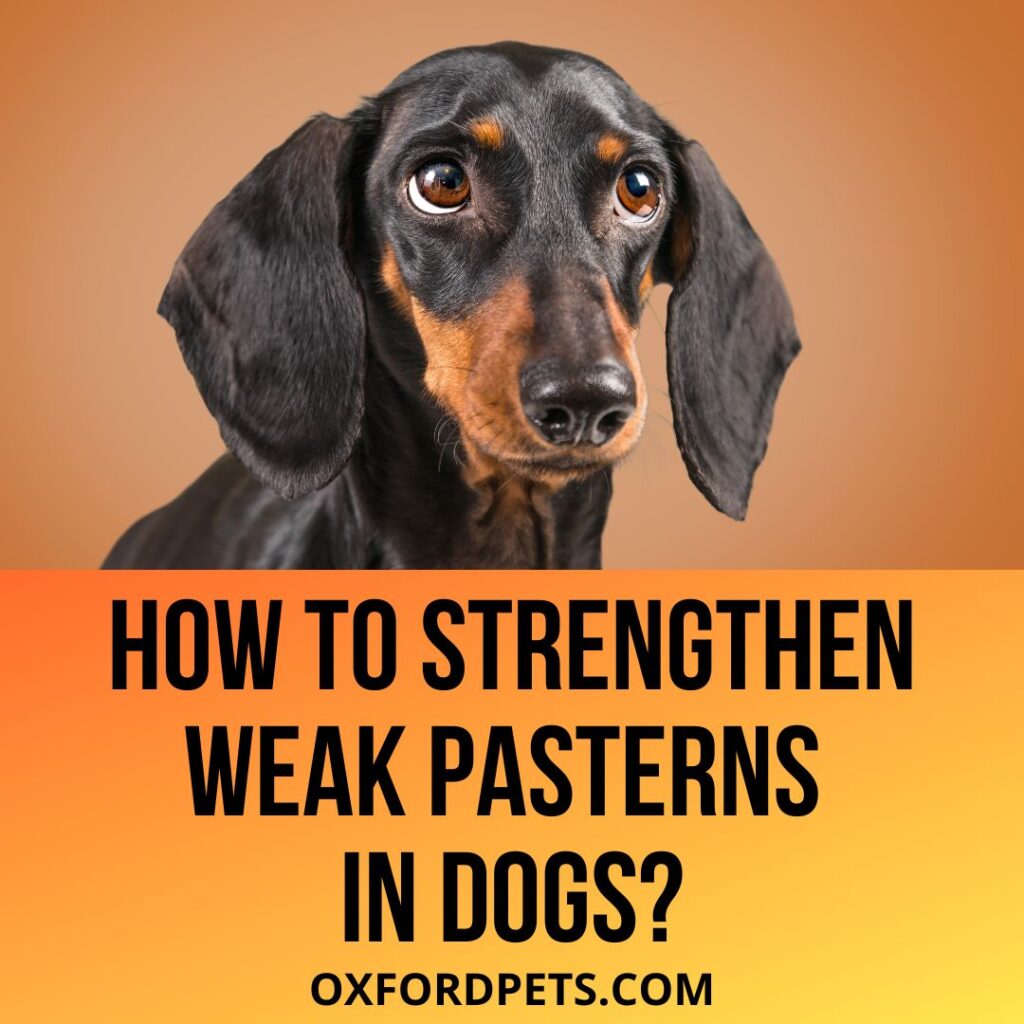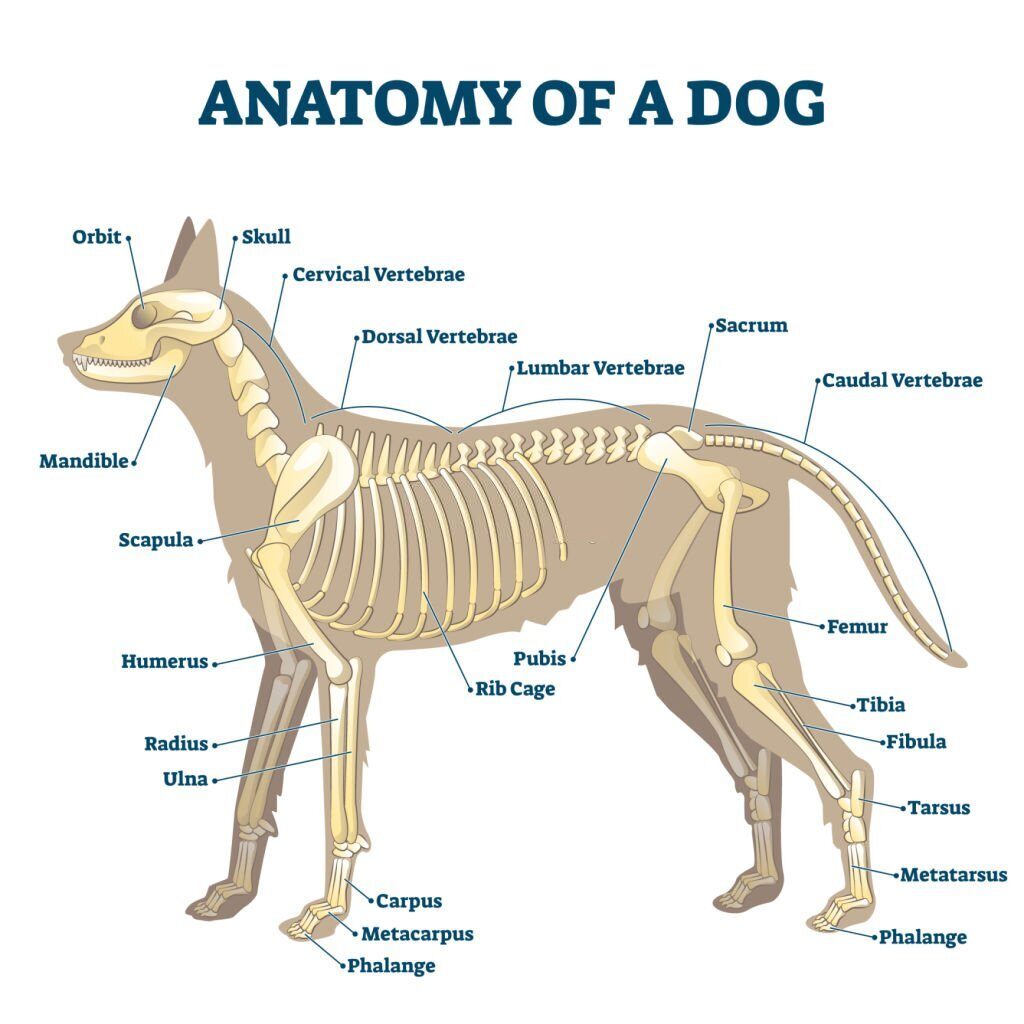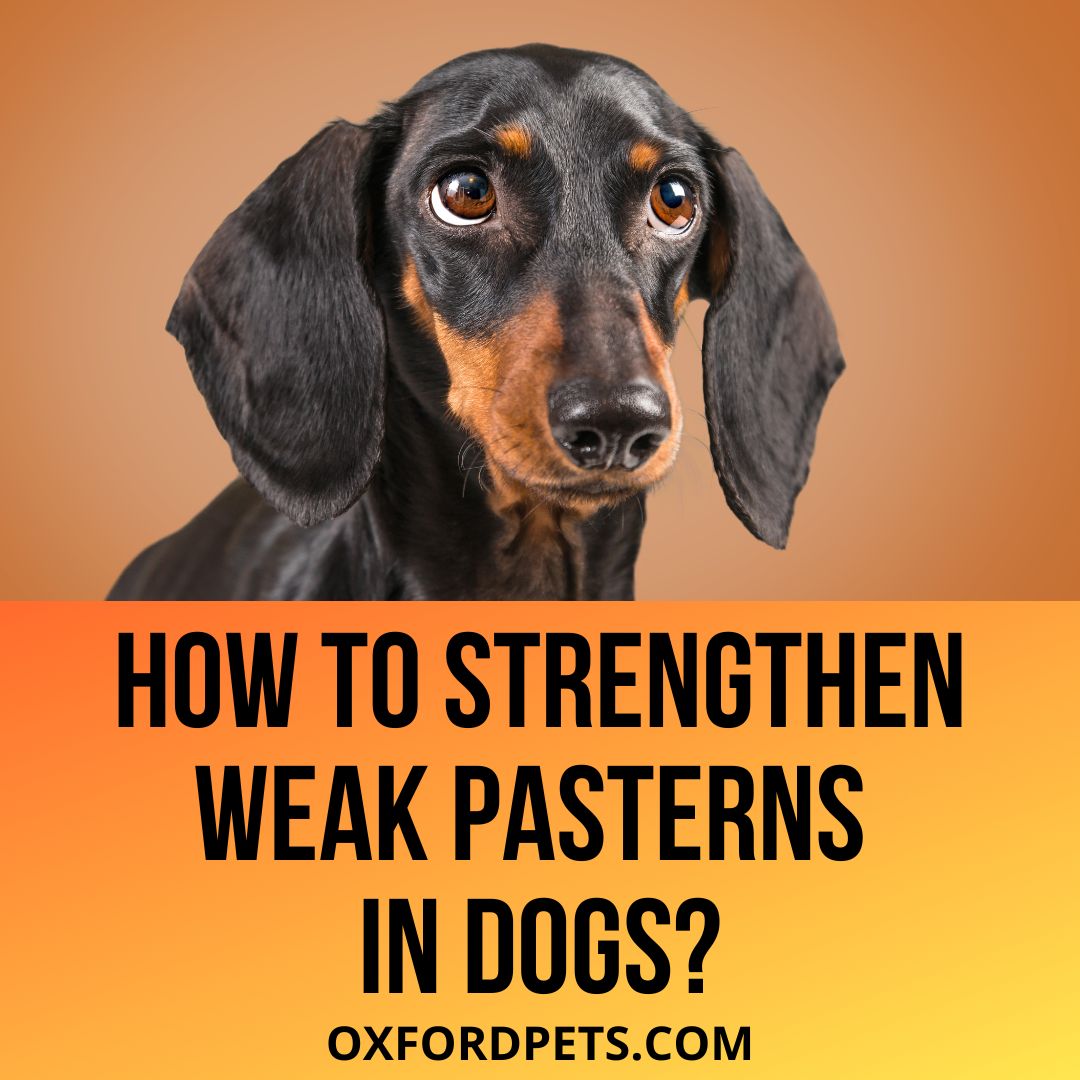Today’s article is all about “How to strengthen weak pasterns in dogs?”. Basically, strengthening the weak pasterns requires a good diet, necessary supplements, and proper exercise. These things make sure that your dog gets enough strength to deal with this medical situation.
let’s understand what weak pasterns are? Weak pasterns are also referred “Low in Pasterns‘ or “Down in the pasterns”.
These are the terms for flat-footed hyperextension of the joints. If you compare it with human hands, this is the space between the lower end of the radius bone and paw. This is closest to the foot.
The condition arises when the ligaments, tendons, or muscles grow faster than the bones. Moreover, they do not have anything to attach to the support.

Contents
What causes weak pasterns in dogs?
Genetic Reason: One of the primary reasons for susceptible pasterns is genetic. The doggy inherited the gene for weak pasterns from their ancestors. Some breeds are afflicted by weak pasterns, specifically the other breeds. It is a common trouble in large breeds including Golden retrievers, German shepherds, etc.
Lack of Nutrition: Nutrition is the primary purpose for weak pasterns. A low-quality meals diet can motivate weak pasterns in your canine. If you do not feed your canine a well-balanced food regimen with an appropriate ratio of fat, protein, calcium, and vitamin, then your canine will suffer from numerous diseases, along with low in pasterns.
Due to Injury: Excessive workouts, running, jumping, or playing on rough surfaces can cause harm to your canine. If the canine’s leg muscle isn’t mature enough, then there’s a possibility of getting injured and tormented with weak pastern due to difficult workouts and training.

Credits: istockphoto
How to strengthen weak pasterns in dogs?
- Compare your canine’s pasterns to those of other dogs. Some canines have naturally low pasterns that are not usually weak. Weak pasterns will be really very close to the ground, sometimes touching or dragging as the canine moves.
- Talk to your vet about your furry friend’s pasterns. Some canine pups naturally grow into the pasterns. On the other hand, others need specific treatment. It is important to know the seriousness of the problem before starting the treatment.
- Provide a good diet to your pooch. Switching to high-quality, protein-rich food will give your dog’s health a necessary boost.
- Take the canine for a regular walk, and play with him on loose or hard surfaces. This will help to strengthen the muscles around the pasterns.
Weak pasterns in dogs – is it serious?
It can actually be a very serious problem for your canine if it has weak pasterns. A canine with weak pasterns cannot jump or run around like a human with a knee injury. The irregular distribution of weight on the forelegs makes them even more aggravating.
How to cure weak pasterns in dogs?
After confirming that your canine’s pastern is low, you have to become aware of the cause. Then you may move to the remedy session of your canine for weak pastern. The right weight-reduction plan and right workout can cure weak pasterns of your canine quickly.
Proper Diet:
If your canine is ill or has a few fitness issues, we regularly overfeed them wondering if the canine will get better quickly if he eats well. But It will cause extra health troubles if the canine puts on an excessive amount of weight.
So, the right weight-reduction plan is a must in case you want your canine to be healthy. Most of the time, low pasterns may be avoided by giving decent dietary meals to the canine.
For fast-growing puppies, you have to ensure that you supply them with excellent quality large breed formula canine meals.
Proper Supplement:
The second factor is that we must be cautious before giving additional dietary supplements to him/her. Back in the vintage days, it was thought that dietary supplements like calcium should prevent weak pasterns.
However, later on, vets discovered that calcium makes the circumstance worse in this situation. They don’t endorse that now.
The simplest supplement for weak pasterns is vitamin c. As vitamin C sustains the power of collagen, it facilitates joints and connective tissues. And additionally, Vitamin C can increase your canine’s immune system. It is the best compliment to recover your canine from any stresses.
Proper Exercise:
The proper workout is vital for canines to recover from weak pasterns. The heavy muscle may be a reason for low pasterns. On the other hand, over-workout or immoderate workouts also can be dangerous to your canine.
Weak pasterns may happen due to an excessive amount of activity too early in a dog’s life. Canines with weak pasterns get tired very fast, and it is much more likely to get injured whilst jumping. Let him work out, stroll or play only as much as he can do, and permit him to rest if he gets worn out.
The kind of surfaces the canine walks on additionally performs a massive role. Do not permit your canine to walk on slippery and tough surfaces because this places an excessive amount of stress on his developing joints and ligaments. Let your dog walk and play on natural surfaces like sand, dirt, mud, and grass to reinforce his pasterns.
Supplements for weak pasterns
The scenario being a clinical situation associated with bones in your canine’s body, it could be easily thought that you can give Calcium supplements to your fido. As you have read the expert advice, that isn’t the case!
Supplying your canine with vitamin C can increase its immunity and assist with joints and connective tissues. It will honestly help with immune-associated illnesses of the joint. Vitamin D supplement is recommended under the supervision of an expert veterinarian.
Other dietary supplements have to be taken whilst registered by a veterinarian.
Exercises for weak pasterns
Over-exercising can be dangerous for canines. And so can be taking walks on flat surfaces that do not provide much friction. A developing pup taking walks on slippery surfaces can stress its muscle tissues and joints. Make sure your canine receives its exercise on a floor with the right friction.
Other pastern issues may be caused by fast bone growth. Bone issues are particularly common in big-breed canines. Hence, when you have one (or more!) you need to be careful.
Final words
In conclusion, I would say that you need to have a proper diet, supplements, and exercises for your canine to strengthen your weak pasterns. It is important to take care of your pooch from the initial age. If not taken, the pastern issue can get serious.
I hope you enjoyed the article. We will be back soon with more amazing pieces of writing. Till then, stay connected. Thank you.
Frequently asked questions
What causes Down in the pasterns in dogs?
Bad pasterns may be inherited. However, there can also be environmental factors like a horrific food plan and weight problems that can cause a canine’s pasterns to collapse. In growing puppies, teething and trauma may come into play. Pups raised on a concrete floor or who are not getting sufficient workout can also be susceptible
Can you fix weak pasterns?
The best exercises for this trouble are: -Walking in sand, dust, and or gravel targets the ideal muscle tissues to strengthen. Therefore making a puppy “stand tall to eat” is an excellent stretching workout to strengthen the vulnerable pasterns
Do Dogs Really have pasterns?
All canines have units of pasterns. Those acquainted with anatomy might also additionally believe there are only the front pasterns, technically metacarpals. However, you may make mistakes here. The rear pasterns also known as the calcaneal process is the factor of hock downward to the tarsal bones.
Where is a dog’s wrist?
The wrist is the decreased joint below the elbow at the foreleg. The top thigh (femur) is a part of the doggy’s leg located above the knee on the hind leg.
Is Vitamin C good for dogs’ Pastens?
Vitamin C is an essential antioxidant. It scavenges potentially dangerous free radicals in the body and might assist lessen infection and cognitive aging. Canines can surely synthesize vitamin C on their own in their livers. However, in a few instances supplementation might also additionally provide health benefits.
